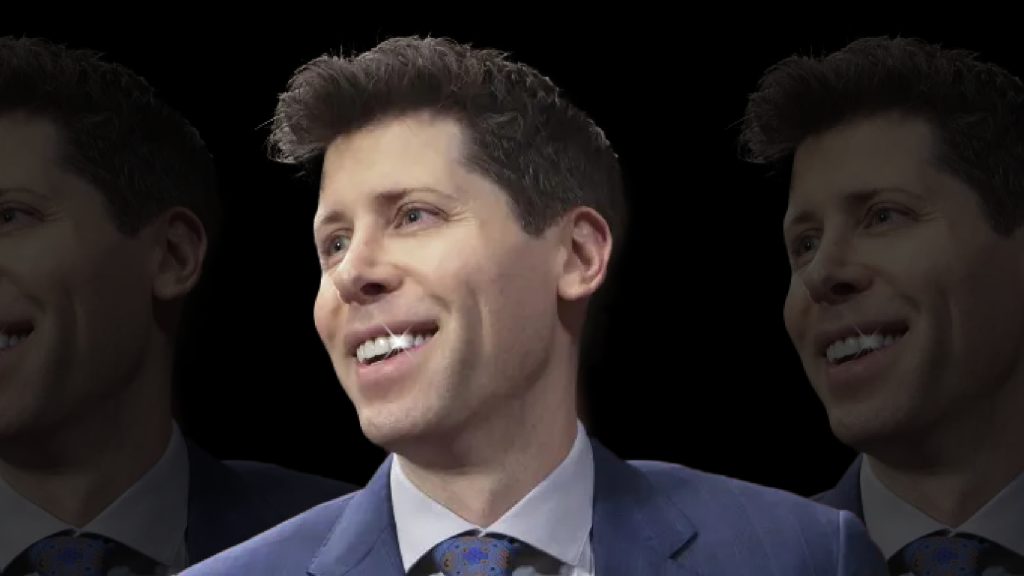
At a board meeting last week at OpenAI, Sam Altman was presenting a strategy that would reverse the losses of ChatGPT and render a profit within three months. It involved a cost-sharing idea whereby the AI tool would prioritise information linked to participating, fee-paying commercial partners. This would achieve one significant goal. Namely, the major shareholder Microsoft would ease up the pressure they had been exerting on OpenAI to start making some money with ChatGPT.
The Gang of Four
One of the other three people in the room posed a simple question. “But doesn’t that go against the charter of our company and the idea of a universal, free channel of research?” This prompted a nod from one of the others and a pursing of the lips from the third. Sam Altman’s reply was this: “No, because all we’ll be doing is ensuring that the companies or institutions that are paying us will appear on screen first. All others that are relevant to research would appear afterwards.” His audience seemed mollified by this faux altruism, and it even prompted the enquiry, “Okay, so how do you propose we sell this idea to prospective partners?” To which Altman replied, “No no. We’ve already signed up 18 different universities, 57 big brands and 200 NGO’s. We’re ready to go.”
“You what?” was the response. “Yeah”, continues Sam. “I had a chat to Microsoft about it and they thought it was a great idea. So my team went ahead with it.”
“Hang on a minute. You went ahead with it? This is a board level decision. You can’t just ‘go ahead with it’, we vote on it. Because it’s structure change, not an operational update.”
Sam Altman bristled at this. “Look, if I had to wait for us to agree on everything then nothing would be done. We’re already split down the middle on technology for good and technology for sale. You guys were perfectly fine with me representing OpenAI at the Senate, in China, in the UK, Europe etc. etc.”
“Sam, that’s not the point. What you’ve done goes against the ethos of our company. Us, the four of us in this room, we’re a collective.”
“Okay” says Sam. “Let’s put this collective to the test, shall we? Either you buy into this plan, or I walk.”
Suddenly, the conversation has taken on a different flavour. It’s no longer about the company. It’s about basic ego. (It happens a lot in room full of billionaires.)
“You can’t walk away, Sam. You’ll lose everything.”
“Wrong. Anything I lose, Microsoft will give back to me. You’re the guys who’ll lose everything. Without me, there’s no OpenAI. And that’s your fault for making me the public face of the company.”
“Right, I’ve had enough”, says Ilya Sutskever. “I propose a motion. All those in favour of Mr. Altman’s immediate removal from the board for actions which have placed the company in jeopardy, raise your hand.”
Three hands are raised – in a burst of ego-driven anger. (Those who think this doesn’t happen a lot in boardrooms around the world as a ploy, I can assure you it does)
But Sam Altman takes it at face value. He stands up, nods his acceptance and leaves. So the remaining three have to get a press release out quicker than it takes Sam Altman to make a call. They issue a statement that notes ‘lack of candour’, clearly remembering that the most believable falsehoods consist of 90% truth.
But he doesn’t make the call the other board members think he’s making to make. Because he already knows the eventual outcome:
Within about a month or so Microsoft, thus far a 49% shareholder, will find a way to make OpenAI a subsidiary, not an independent company.
Anywhere else in the world, they’d call this a well planned, perfectly executed coup.
Inside Telecom provides you with an extensive list of content covering all aspects of the tech industry. Keep an eye on our Opinion sections to stay informed and up-to-date with our daily articles.